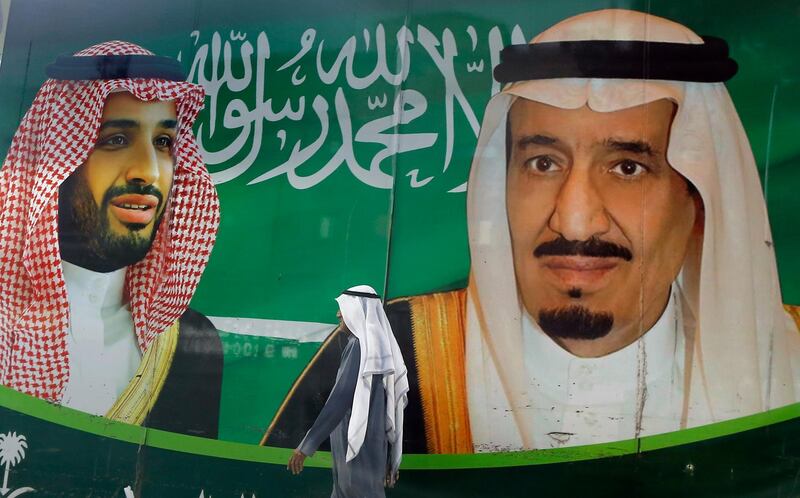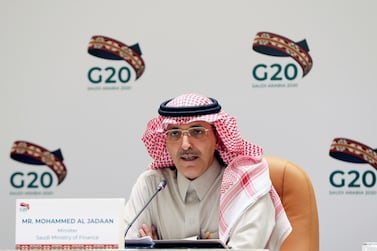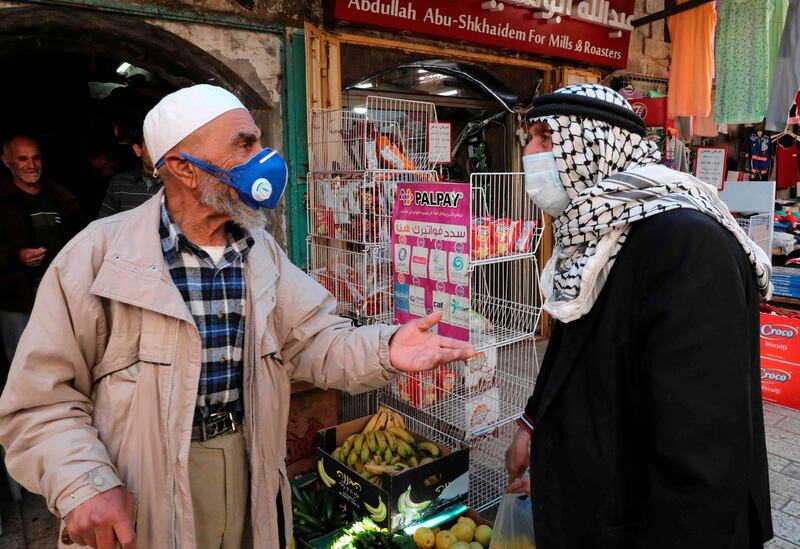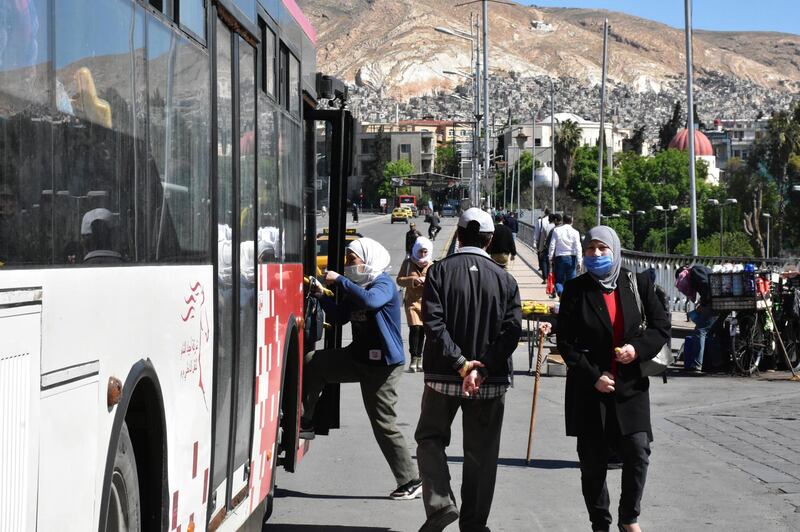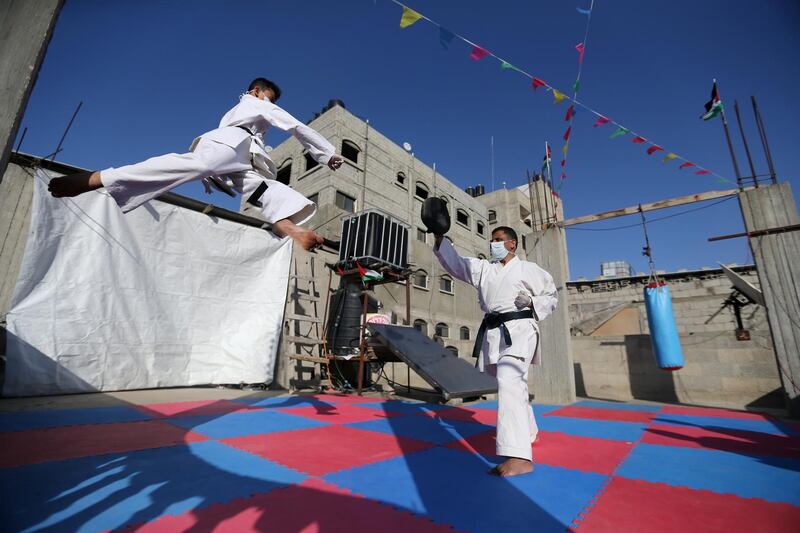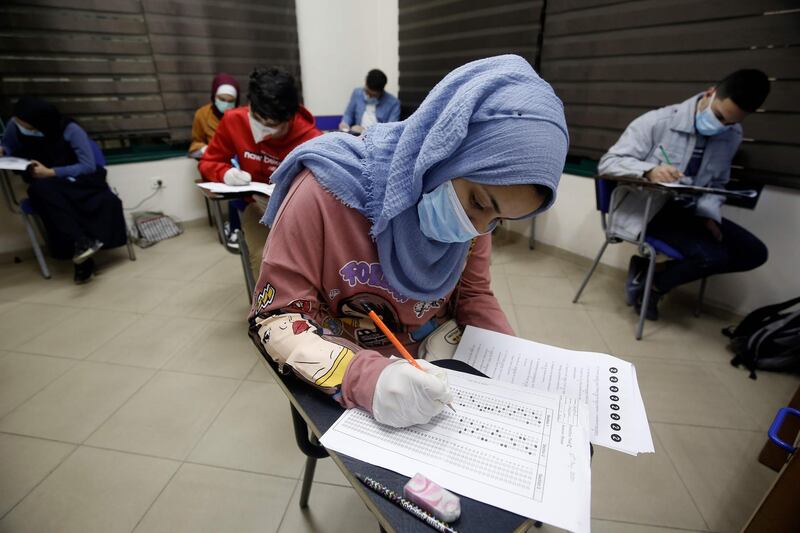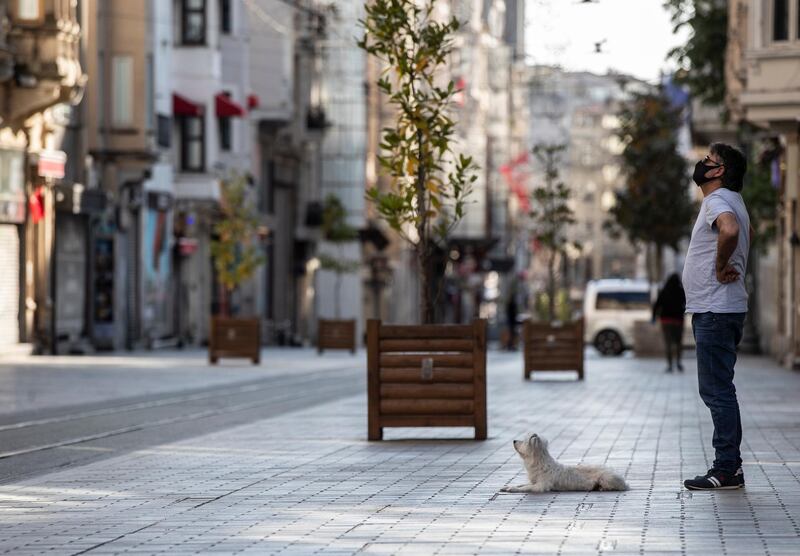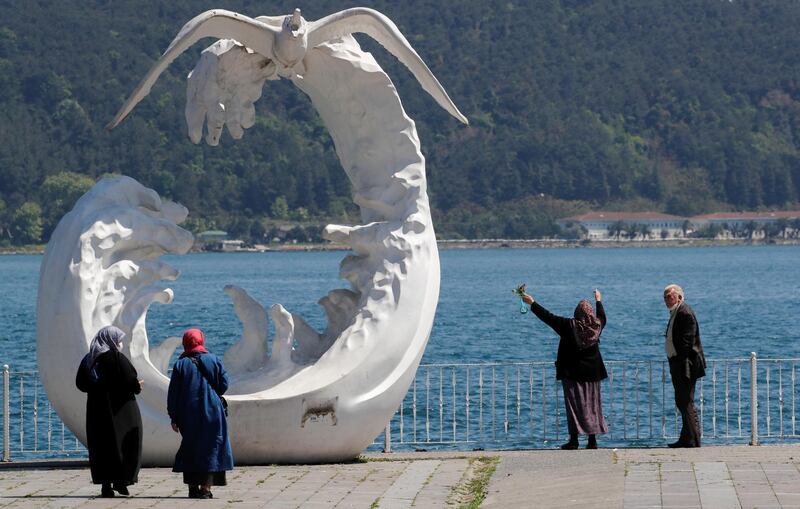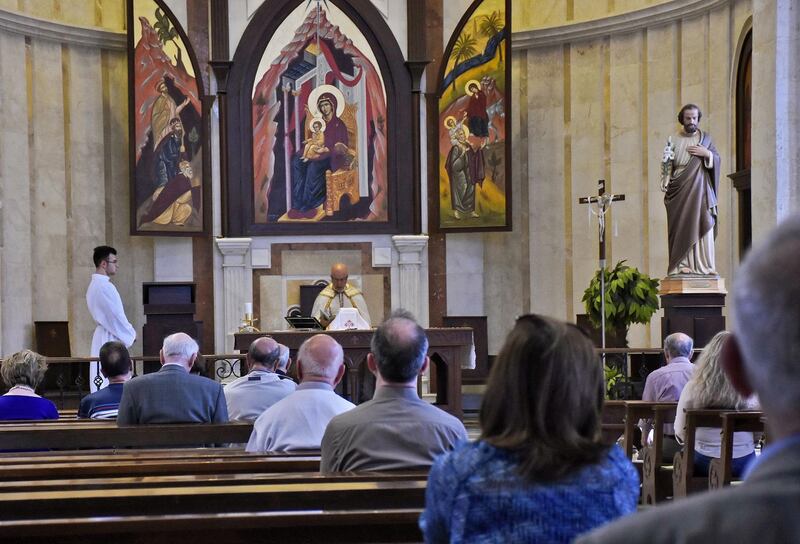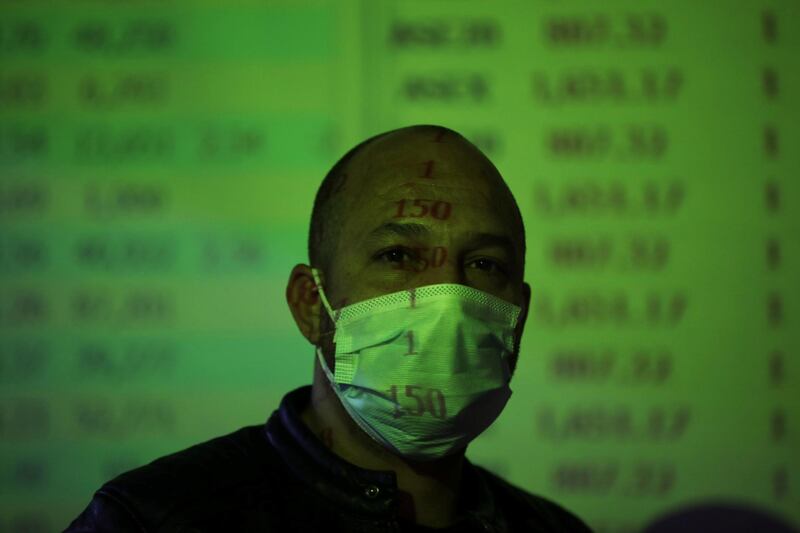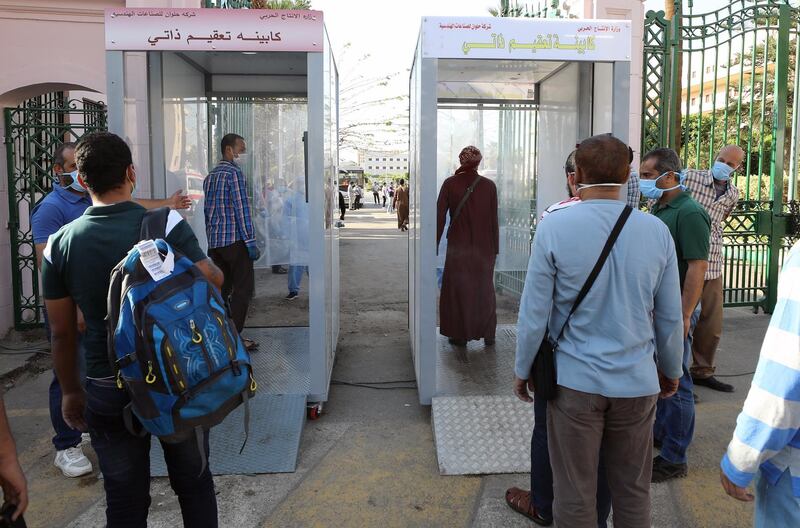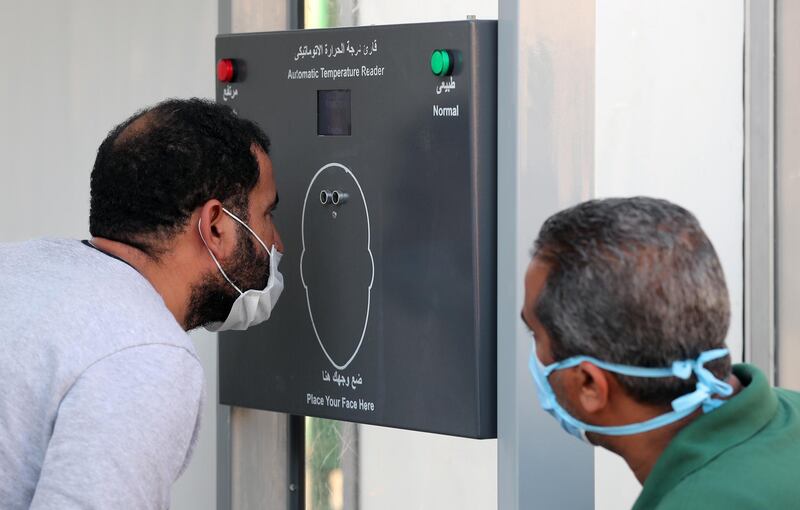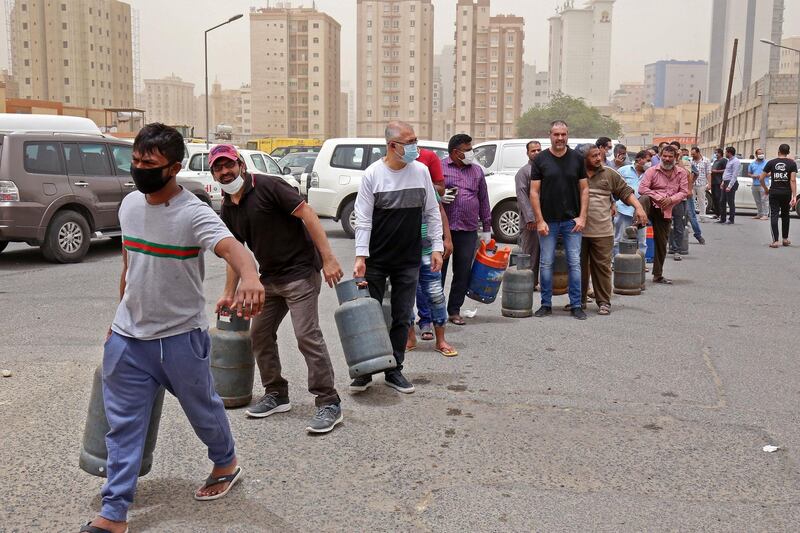King Salman of Saudi Arabia has ordered one-off cash assistance payments to each family on welfare rolls, the latest financial measure taken by the government to contain the impact of the coronavirus on the economy.
Shortly after the hike in Value Added Tax, the official news agency said on Monday that each family on social security will receive 1,000 riyals (Dh977) and every dependent in those families another 500 riyals.
“This generous gesture comes out of the Servant of the Two Holy Shrines’s concern to present everything that would provide ample living to the citizens,” the Saudi Press Agency said on Monday.
The Kingdom’s VAT rose threefold to 15 per cent on Sunday.
The cost of living allowance, which is given to students, retirees, all state employees and the military and security apparatus, will be suspended from June.
Finance minister Mohammad Al Jadaan said the tax increase and spending cuts are meant to offset the impact of the coronavirus and lower oil prices on state finances.
The number of confirmed infections in the kingdom reached 41,014 people after the authorities reported nearly 2,000 new cases on Monday. Among these, 255 have died, with the number of cases spiking over the last two weeks.
Reuters reported that total coronavirus cases in the six GCC states exceeded 100,000, based on official data.
Officials across the Arabian Gulf have been warning that the coronavirus could necessitate overhauls to the region’s oil-dependent economies and sought to minimise any backlash against the millions of migrant labourers in the region.
The Omani government said on Monday it has terminated the school year due to the coronavirus. A special cabinet committee decided that all classes in Oman ended from May 7.
The capital Muscat will remain sealed off from the rest of the country till at least May 29, Omani authorities said. Officially recognised cases in the sultanate rose by 174 to 3,573 on Monday.
Authorities in Kuwait said they have filed charges against a man who appeared this week in a video on Facebook attacking a foreign worker at a petrol station, in a violent incident related to the coronavirus.
The Health Ministry reported nearly 600 new cases and seven deaths, bringing the respective totals to 9,286 and 65.
The Kuwaiti Emir, Sheikh Sabah, said on Saturday that the coronavirus-related drops in oil price would affect the solvency of the state and the government must take steps to contain public spending.
Sheikh Sabah said in an address to the country that Kuwait faced “a big and unprecedented challenge to preserve the safety and solidity of our national economy from the external shocks as a result of this contagion”.
Bahrain waived residency and visa renewal fees and extended permits to stay in the country till the end of the year. Those holding expired visas will be allowed to stay another three months without charge.
